Fan Team
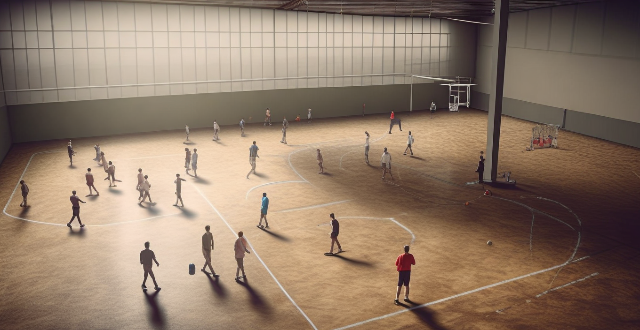
Does sports sponsorship have an impact on the fan engagement and loyalty towards a team or event ?
The influence of sports sponsorship on fan engagement and loyalty is multifaceted, with potential positive impacts such as enhanced brand visibility, improved attendance and viewership, and community involvement. However, there are also potential negative effects like overcommercialization concerns and misaligned brand values. The impact can vary based on factors including team performance and fan demographics.
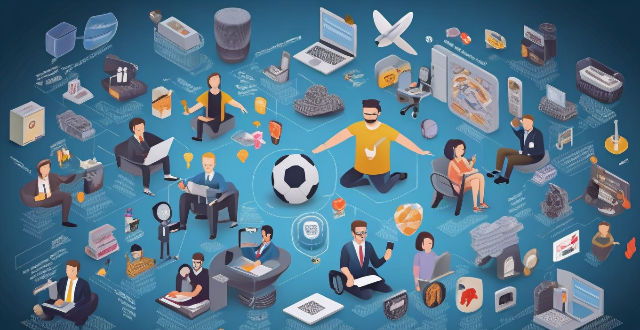
What are the key factors that influence the economic success of a sports team or league ?
The economic success of a sports team or league is influenced by various factors, including fan base and attendance, broadcasting rights and media coverage, sponsorship and partnerships, player performance and talent management, marketing and branding, financial management, governance and leadership, and legal and regulatory framework. A loyal fan base ensures consistent ticket sales and merchandise purchases, while higher attendance rates lead to increased revenue from ticket sales. Lucrative broadcasting contracts and positive media coverage attract fans and sponsors alike. Corporate sponsors provide financial support, while strategic alliances with other brands expand marketing reach. Top players attract fans and improve team performance, while effective draft strategies ensure a steady stream of talented athletes. A strong brand resonates with fans and attracts commercial interest, while creative marketing campaigns generate buzz and drive sales. Efficient spending on operations and player salaries is crucial for financial success, as is diversifying revenue streams. Strong leadership sets the course for long-term success, while transparent governance fosters trust among stakeholders. Adhering to laws and regulations avoids financial penalties and reputational damage, while fair labor agreements ensure stability. Overall, these factors work together harmoniously to create a sustainable and thriving sports organization.
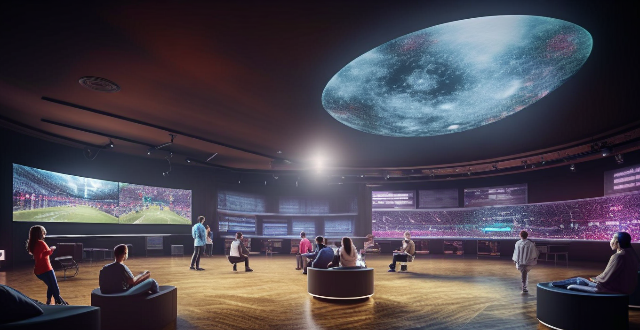
How has augmented reality transformed fan engagement in sports ?
Augmented Reality (AR) is revolutionizing fan engagement in sports by offering immersive experiences that blend physical and digital elements. AR enhances viewing experiences with interactive overlays and virtual seats, enables in-game interaction through team and player interaction and game day activities, boosts merchandise and sponsorship opportunities with interactive ads and virtual try-ons, aids navigation and wayfinding in stadiums, and encourages social sharing through augmented selfies and virtual reality social spaces. These advancements are transforming the way fans connect with sports and teams, creating more engaging and interactive experiences.
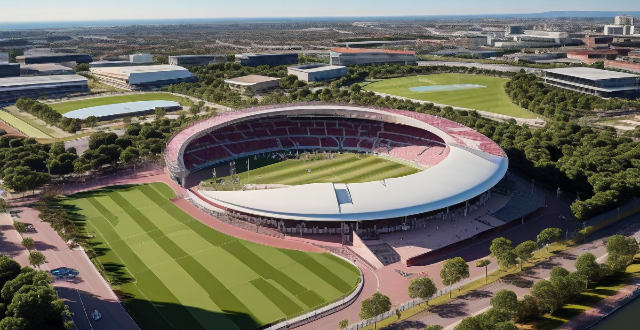
How can a sports stadium be designed to enhance fan engagement and experience ?
Designing a sports stadium to enhance fan engagement and experience requires careful consideration of various factors. These include seating arrangements, technology integration, amenities, and more. Key strategies for designing an engaging stadium involve creating premium seating options near the field, ensuring good viewing angles, providing comfortable seating, offering strong Wi-Fi connectivity, developing mobile apps, installing large screen displays, integrating interactive features, offering a variety of food and beverage options, ensuring ample restroom facilities, creating merchandise stores, designating family-friendly areas, using music and lighting effects to create an energetic atmosphere, encouraging fan interaction through contests and giveaways, and planning themed events around holidays or special occasions. By prioritizing these factors, you can ensure that your sports stadium becomes a destination for sports enthusiasts seeking an exceptional experience.

In what ways can AI enhance the fan experience at sporting events ?
AI is enhancing the fan experience at sporting events by offering personalized, interactive, secure, and accessible experiences. It can create customized highlights, provide real-time analytics, offer immersive VR/AR experiences, power interactive apps, enhance security through facial recognition and crowd management, and improve accessibility with live captioning, translation, and visualization tools for blind fans. These advancements are making sports more enjoyable and safer for fans worldwide.

What are some creative ways to organize a fan support event ?
Organizing a fan support event can be a fun and creative way to engage with your audience and create a sense of community around your brand or organization. Here are some creative ways to organize a fan support event: 1. Hosting themed parties, such as costume contests or trivia nights. 2. Organizing virtual events where fans can participate from home, such as live streaming the event on social media platforms or creating interactive experiences. 3. Collaborating with other brands or organizations to expand your reach and create unique experiences for fans. 4. Hosting contests and giveaways to engage fans and create excitement around your event. 5. Personalizing the event experience for fans, such as offering personalized merchandise or creating custom-made content featuring fans' names. 6. Creating interactive installations or exhibits related to your brand or organization. 7. Involving the local community in your fan support event to create a sense of belonging and connection among fans.

How does the media influence the perception of different sports and their respective fan bases ?
The media significantly impacts sports perception and fan bases by focusing on popular sports, creating celebrity athletes, promoting major events, fostering online communities, and shaping public opinion. This influences how people engage with and view various sports.

Can you provide examples of successful fan support campaigns for different artists ?
Successful fan support campaigns for various artists have been instrumental in promoting their work and achieving their goals. Examples include Taylor Swift's "1989" world tour, Beyoncé's "Lemonade" release, and BTS's "Love Myself" anti-violence and anti-bullying campaign. These campaigns engaged fans through social media, exclusive content, and community building, resulting in increased album sales, critical acclaim, and positive change.

What is the significance of mascots and team logos in sports culture and art ?
This text discusses the role and importance of mascots and team logos in sports culture and art. It explains different types of mascots, their significance in promoting identity and pride among fans and players, as well as their ability to influence game outcomes. The text also explores the elements of team logos such as colors, shapes, and text, highlighting their role in brand recognition and revenue generation. Overall, it emphasizes how these symbols contribute to a unique sporting atmosphere and promote team spirit among fans.
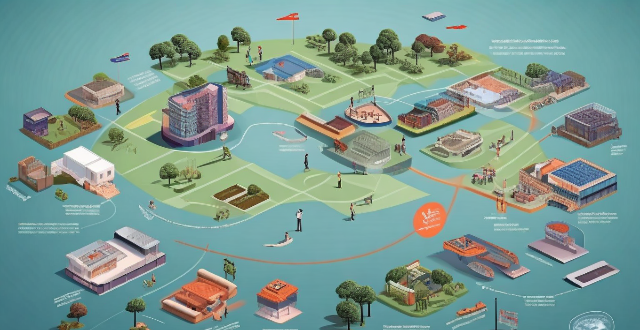
How does the globalization of sports media affect fan engagement and consumption patterns ?
The globalization of sports media has significantly impacted fan engagement and consumption patterns. Enhanced accessibility through live streaming, on-demand content, and digital platforms has revolutionized how fans watch and interact with sports. Diverse content offerings, including international coverage and multilingual broadcasts, have expanded the reach of sports to global audiences. Personalized experiences through customized content and fantasy sports have increased fan engagement. Additionally, virtual events, e-sports, and online tournaments provide new opportunities for fans to participate and engage. Changes in consumption patterns, such as a shift towards digital subscription models and online merchandise shopping, reflect the evolving landscape of sports media. Overall, the globalization of sports media has transformed the way fans consume and enjoy sports worldwide.

How do fan support events differ between music genres or cultures ?
The text discusses the variations in fan support events across different music genres and cultures. It highlights how these events differ in terms of concert tours, meet and greets, signings, fan clubs, and online communities. The examples provided illustrate the unique traditions and practices associated with each genre or culture, showing how artists connect with their audiences in diverse ways.

How can fans participate in or support charitable initiatives through their favorite sports teams or athletes ?
Sports fans can support charitable causes by participating in or donating to initiatives of their favorite teams and athletes, volunteering for projects, purchasing merchandise, spreading awareness on social media, joining fan clubs, and following the lead of athletes and teams.

How do fan support events impact an artist's success and popularity ?
Fan support events play a crucial role in shaping an artist's success and popularity by increasing visibility, strengthening fan loyalty, providing monetization opportunities, and enhancing reputation and credibility. These events offer platforms for fans to connect with artists, generate media coverage, create social media buzz, foster personal connections, offer exclusive experiences, sell merchandise, increase ticket sales, gain industry recognition, and influence critic opinions. Overall, fan support events are essential components of an artist's career development strategy.
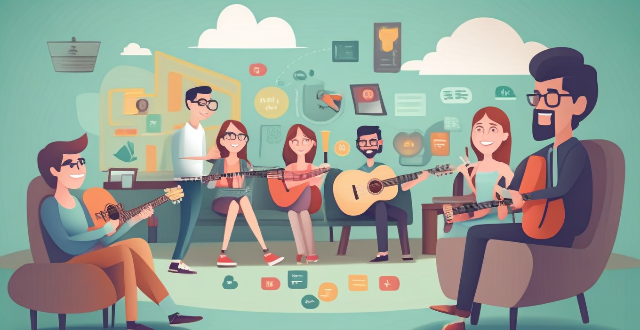
What are the most common types of fan support activities for musicians ?
Musicians depend on various fan support activities to build their careers, including attending concerts, streaming music, following on social media, participating in online communities, writing reviews, creating fan art, and organizing fundraising campaigns. These activities help generate income, increase exposure, strengthen connections with fans, and provide valuable feedback and support for musicians' endeavors.
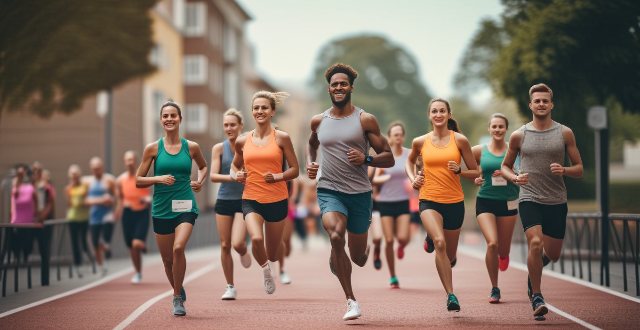
How has technology changed the way we experience sports ?
Technology has revolutionized the way we experience sports, from enhanced viewing experiences to instant access to information, improved training and performance, and increased fan engagement and interaction. High-definition broadcasts, multi-angle replays, and interactive platforms have made watching sports more immersive. Live score updates and in-depth analysis provide fans with real-time information. Advanced analytics and wearable technology help teams and athletes optimize training and performance. Virtual reality and social media create a sense of community and foster discussions beyond the traditional boundaries of the stadium. Overall, technology continues to shape the future of sports in exciting new ways.
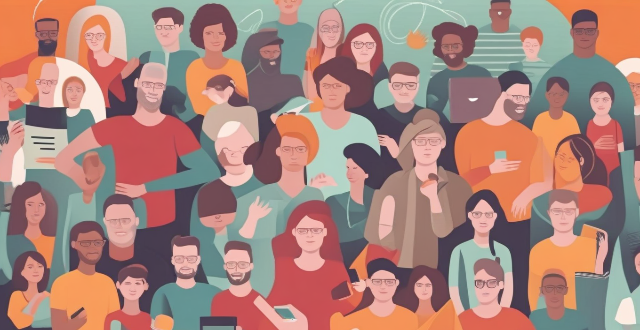
What role does social media play in organizing and promoting fan support events ?
Social media is a crucial tool for organizing and promoting fan support events, connecting fans, promoting events, engaging fans, and measuring success. It allows fans to form online communities dedicated to their favorite artists or sports teams, share news, updates, and information about upcoming events. Artists, sports teams, and event organizers can use social media to announce upcoming events, share details about the event, and encourage fans to attend. Social media also provides opportunities for fans to engage with their favorite artists or sports teams in meaningful ways, such as participating in contests and giveaways or sharing user-generated content related to the event. Finally, social media provides valuable data that can be used to measure the success of fan support events by tracking metrics such as likes, shares, comments, and reach.

How can sports marketing help to build customer loyalty ?
Sports marketing is a powerful tool that can build customer loyalty by leveraging the emotional connection between fans and their favorite teams. Strategies include sponsorships, promotions, giveaways, and social media engagement to create a sense of shared identity and community among customers. Examples include Nike's sponsorship of the Brazilian national football team, Coca-Cola's partnership with the Olympic Games, Budweiser's "Up for Whatever" campaign, McDonald's "McRib" promotion during the World Series, ESPN's social media presence, and Red Bull's extreme sports content on social media channels. By establishing themselves as trusted partners of popular sports teams and events, businesses can increase customer loyalty and brand recognition.
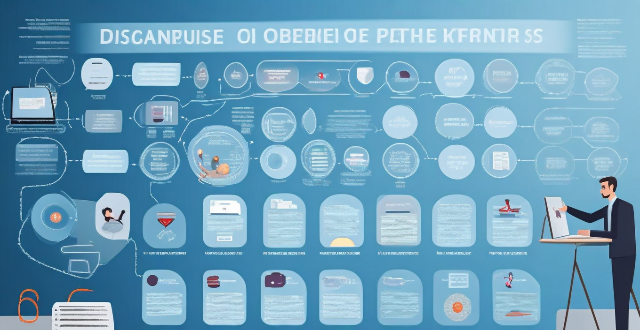
In what ways can team dynamics and chemistry affect overall performance in team sports ?
The article discusses the impact of team dynamics and chemistry on performance in team sports, highlighting trust, role clarity, effective leadership, and adaptability as key factors. Trust fosters open communication and reduces conflict, while clear roles improve efficiency and cohesion. Effective leaders provide motivation and accountability, and adaptability allows teams to respond to challenges and capitalize on opportunities. By focusing on these elements, teams can improve their chances of success.

What are the benefits and drawbacks of virtual fan support events compared to in-person events ?
Virtual fan support events provide global accessibility, cost-Virtual fan support events provide global accessibility, cost- benefits but face challenges like limited cost-effectiveness, and safety benefits but face challenges like limited personal interaction and technical issues. Finding a balance between virtual and in-person events is crucial for meaningful connections.

Can team sports help with social anxiety ?
Team sports can potentially help individuals with social anxiety by providing a supportive environment for exposure therapy, building confidence, offering positive reinforcement, distracting from self-consciousness, and developing social skills. However, professional guidance should be sought if social anxiety significantly impacts one's life.
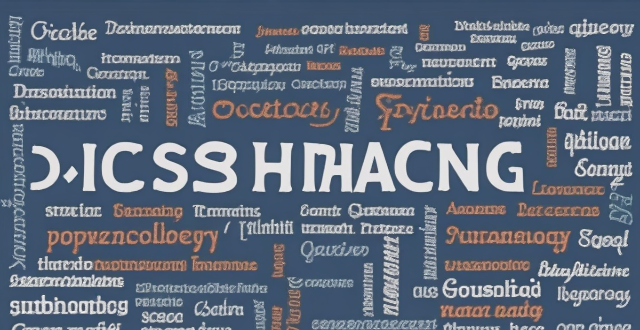
Can sports psychology improve team dynamics and cohesion ?
The text discusses the role of sports psychology in enhancing team dynamics and cohesion. Sports psychology can improve communication, build trust, promote collaboration, manage conflict, create a shared vision, foster resilience, encourage social support, and promote diversity and inclusion among team members. These interventions lead to better understanding, reduced misunderstandings, increased support and reliability, effective collaboration, constructive conflict management, a unified purpose, improved coping strategies, emotional comfort and encouragement, and an inclusive culture. Overall, sports psychology plays a crucial role in improving team dynamics and cohesion, leading to greater success for athletes and teams.

How does team sports impact psychological well-being ?
Participating in team sports can have a significant impact on an individual's psychological well-being. Team sports provide opportunities for social interaction, physical activity, and personal growth, all of which contribute to overall mental health. Social interaction reduces feelings of loneliness and isolation, while physical activity improves mood and reduces symptoms of anxiety and depression. Personal growth through learning new skills or overcoming challenges builds resilience and confidence. Team sports also provide a healthy outlet for stress relief and require discipline and time management skills that can translate into other areas of life. Overall, participating in team sports can improve mental health and quality of life.

Can team sports help in coping with pressure ?
Team sports can help cope with pressure by developing resilience, building confidence, providing supportive networks, and teaching time management.
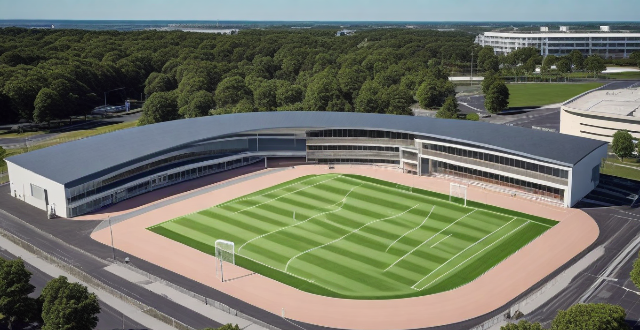
How do successful sports leaders motivate their team members ?
Successful sports leaders motivate their teams through clear objectives, positive reinforcement, encouragement, leading by example, communication, building team spirit, continuous development, resilience, and celebrating achievements.

How can team sports help in individual skill development ?
Team sports contribute significantly to individual skill development by improving communication skills, enhancing leadership abilities, increasing self-confidence, bettering time management, improving social skills, promoting physical fitness and coordination, providing opportunities to learn from mistakes, and fostering adaptability.
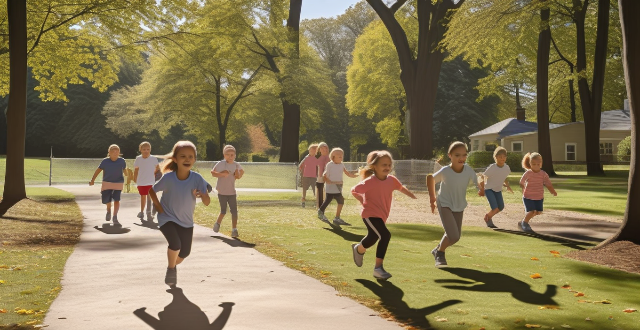
Which team has the best record in the current NBA season ?
The NBA season is marked by intense competition among teams vying for the best record to secure playoff advantages. Key performers include the Phoenix Suns, Golden State Warriors, Milwaukee Bucks, and Utah Jazz, each with notable achievements contributing to their standings. Factors like winning percentage, quality wins, home and away performance, health, roster depth, and the balance of star power and team cohesion are crucial in determining a team's overall success. As the season progresses, changes in records and standings are expected, keeping fans and analysts engaged in the pursuit of the top spot.
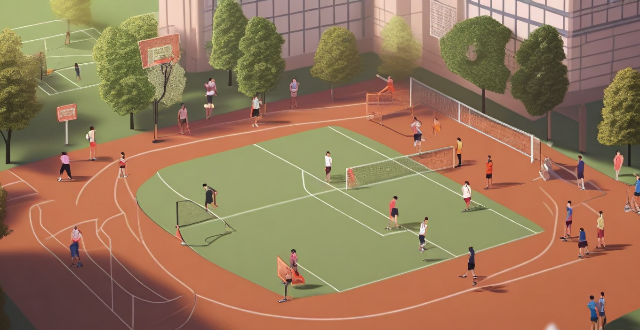
How does team sports contribute to social well-being ?
Team sports significantly contribute to social well-being by building a sense of community, promoting cooperation and teamwork, providing opportunities for personal growth, enhancing health and well-being, integrating into society, and encouraging civic engagement and social responsibility. These activities not only bring people together but also teach valuable life skills that extend beyond the playing field, positively impacting individuals and society as a whole.

How does team sports contribute to personal growth and development ?
Team sports contribute significantly to personal growth and development by helping individuals develop various skills, qualities, and values essential for success in all aspects of life. These include communication skills, leadership abilities, teamwork and collaboration, discipline and responsibility, goal setting and achievement, emotional intelligence, and time management. Participating in team sports can help individuals become well-rounded individuals who are prepared for whatever challenges lie ahead.

What is the latest update on the NBA trade deadline ?
The NBA trade deadline has passed, resulting in severalThe NBA trade deadline has passed, resulting in several impact the league's play resulting in several notable trades that could impact the league's playoff race and future team dynamics. Key trades include the Boston Celtics acquiring Evan Fournier, the San Antonio Spurs sending LaMarcus Aldridge to the Brooklyn Nets, the Golden State Warriors acquiring Andrew Wiggins and D'Angelo Russell, and the Miami Heat acquiring Andre Iguodala. These moves have implications for both the teams involved and the league as a whole, with potential shifts in power and long-term effects on player development and team rebuilding efforts. Fan reactions to these trades have been mixed, with excitement and disappointment among different fan bases.